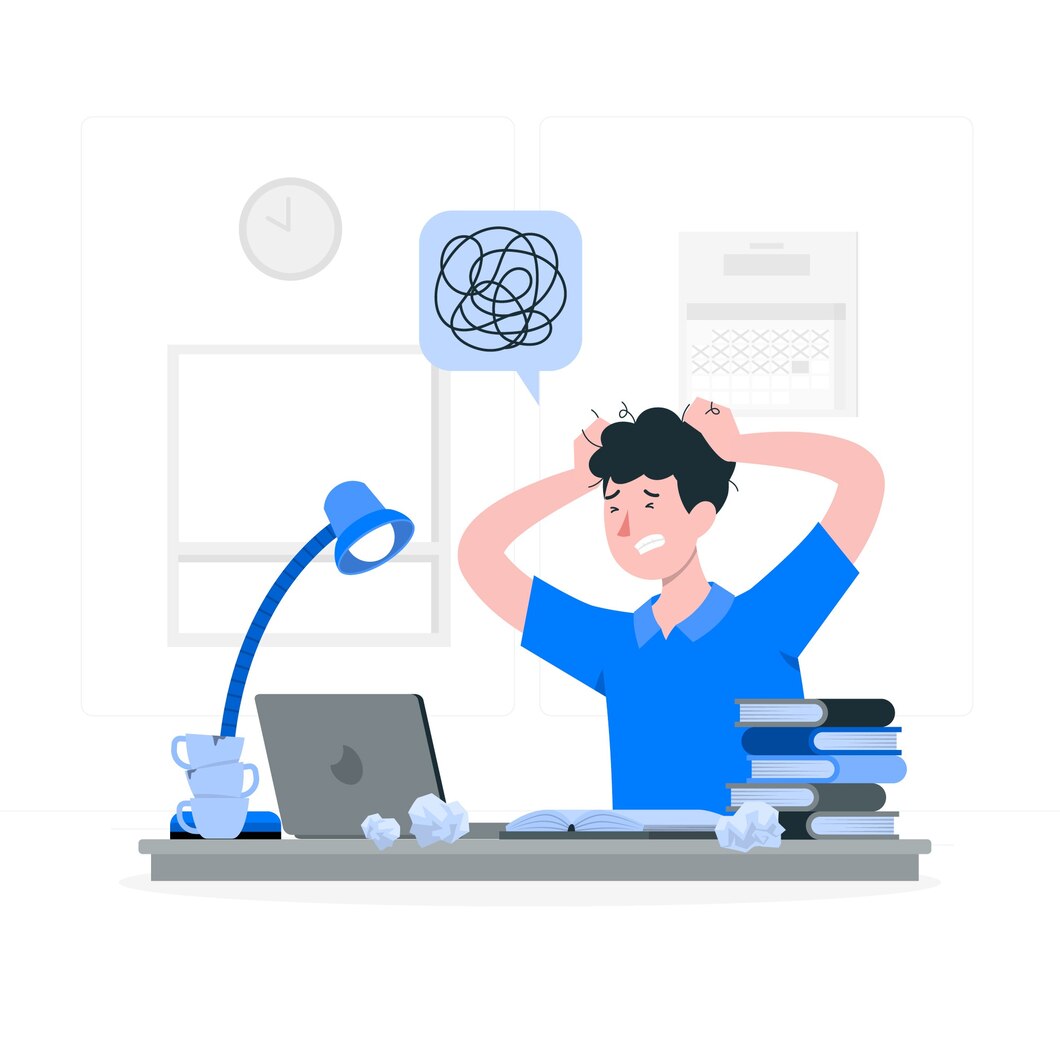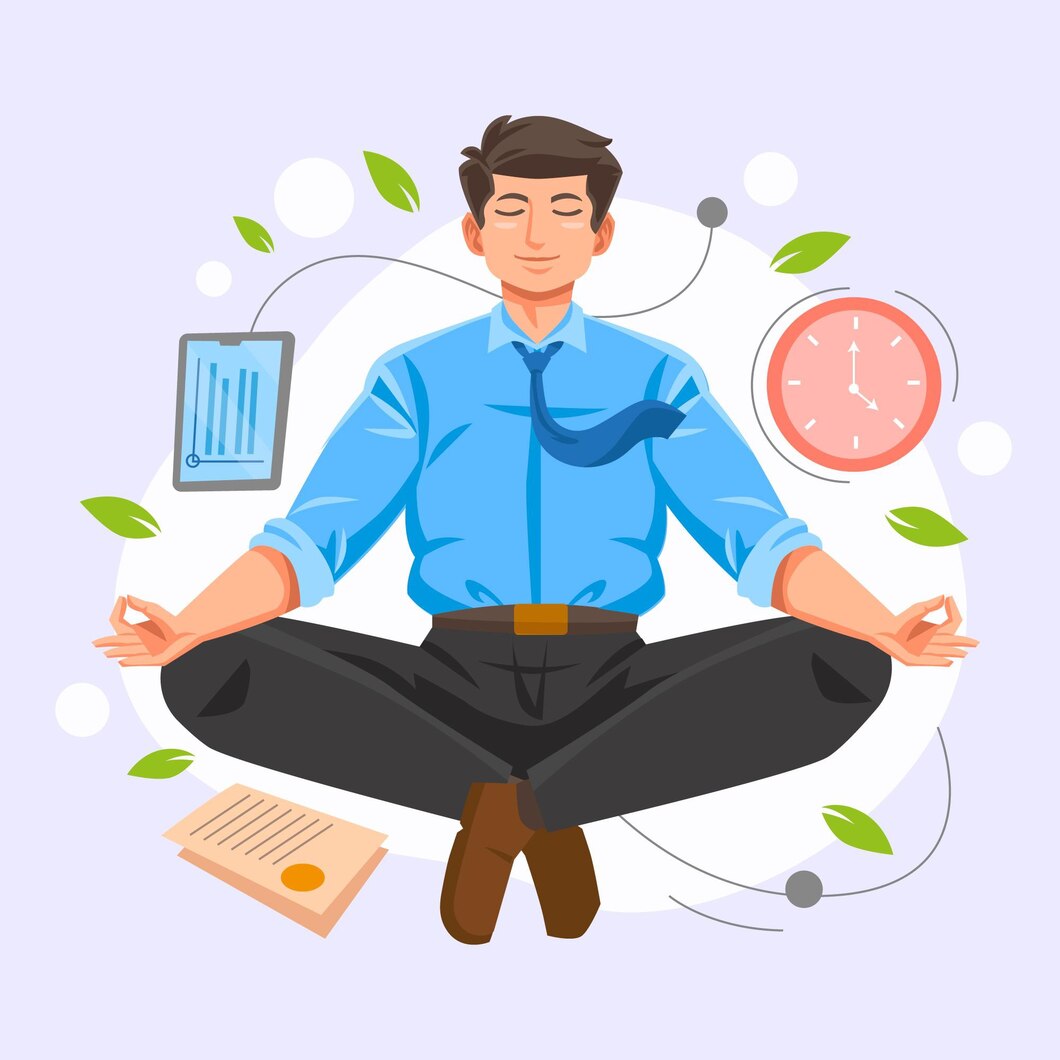Introduction
Anxiety is a natural response to stress, but when it becomes overwhelming, it can interfere with daily life, relationships, and overall well-being. Whether it’s triggered by work pressure, financial worries, or personal challenges, managing anxiety effectively is crucial for mental and physical health. The good news? Anxiety can be controlled with practical strategies and small lifestyle changes. In this article, we’ll explore simple yet powerful techniques to stay calm, regain control, and improve your emotional resilience.
1. Recognizing Anxiety: Understanding the Signs
Before managing anxiety, it’s important to recognize it. Anxiety manifests in different ways, including:
🔹 Physical Symptoms: Rapid heartbeat, sweating, shortness of breath, dizziness, muscle tension, or restlessness.
🔹 Emotional Symptoms: Constant worry, fear, overthinking, feeling overwhelmed, or experiencing irritability.
🔹 Behavioral Symptoms: Avoiding social interactions, procrastinating, or engaging in repetitive negative thoughts.
If you experience these symptoms frequently, it’s time to adopt strategies to reduce and manage anxiety effectively.
2. Practice Deep Breathing and Relaxation Techniques
Breathing exercises help regulate the nervous system, reducing stress and anxiety almost instantly. Try the 4-7-8 Breathing Technique:
1️⃣ Inhale deeply through your nose for 4 seconds.
2️⃣ Hold your breath for 7 seconds.
3️⃣ Exhale slowly through your mouth for 8 seconds.
4️⃣ Repeat this for 4–5 cycles to calm your mind.
Other relaxation techniques like progressive muscle relaxation and guided meditation also help ease anxiety and promote a sense of calm.
3. Challenge Negative Thoughts
Anxiety often comes from negative or irrational thoughts. To combat this:
✔️ Identify your anxious thoughts. Write them down to gain perspective.
✔️ Ask yourself: “Is this thought based on facts or assumptions?”
✔️ Reframe the thought. Replace negativity with a realistic, balanced perspective.
For example, instead of thinking, “I will fail this presentation,” say, “I have prepared well, and I will do my best.” This shift in mindset reduces catastrophic thinking and fear-based responses.
4. Engage in Physical Activity
Exercise is a natural anxiety reliever. It helps release endorphins, which boost mood and reduce stress. Activities like:
🏃♂️ Walking or jogging – Clears your mind and reduces anxious energy.
🧘♀️ Yoga and stretching – Enhances relaxation and improves emotional balance.
🏋️♀️ Strength training – Builds confidence and helps release pent-up stress.
Even 15-30 minutes of daily physical activity can make a significant difference in anxiety levels.
5. Maintain a Healthy Lifestyle
Your lifestyle choices play a crucial role in mental well-being. Follow these simple habits:
🥗 Eat a balanced diet – Reduce caffeine, sugar, and processed foods that can trigger anxiety. Focus on whole foods, leafy greens, nuts, and omega-3-rich fish.
💧 Stay hydrated – Dehydration can worsen anxiety and mood swings. Aim for 8 glasses of water daily.
😴 Get enough sleep – Poor sleep fuels anxiety. Stick to a consistent bedtime routine and avoid screens before bed.
🍵 Limit stimulants – Reduce caffeine and alcohol, as they can intensify anxiety symptoms.
A healthy body supports a healthy mind, making it easier to manage stress.
6. Practice Mindfulness and Meditation
Mindfulness helps you stay present in the moment rather than worrying about the past or future. To incorporate mindfulness into your routine:
🧘♂️ Try a 5-minute mindfulness meditation. Close your eyes, focus on your breath, and observe your thoughts without judgment.
🍂 Engage in mindful activities. Eat, walk, or even wash dishes with full attention, using all your senses.
📱 Use mindfulness apps like Headspace or Calm for guided meditation sessions.
Practicing mindfulness daily improves mental clarity and emotional regulation, helping you stay calm and focused.
7. Connect with Others
Anxiety often worsens when we isolate ourselves. Talking to someone you trust can reduce stress and offer emotional relief.
🤝 Reach out to a friend or family member – Expressing your thoughts helps lighten the mental burden.
💬 Join a support group – Connecting with others who understand anxiety can be reassuring.
📞 Seek professional help if needed – A therapist or counselor can provide personalized coping strategies.
You don’t have to face anxiety alone. Support is available, and reaching out is a sign of strength.
8. Create a Calming Routine
Having a structured daily routine helps reduce uncertainty and anxiety. Some calming activities to include:
📖 Journaling – Write down thoughts, feelings, and daily gratitudes.
🎨 Creative outlets – Drawing, music, or DIY crafts can be therapeutic.
🚶♀️ Nature walks – Spending time outdoors helps lower stress levels.
🎶 Listening to calming music – Soothing melodies promote relaxation.
Small lifestyle adjustments can make a big difference in managing anxiety long-term.
Conclusion
Anxiety is a common but manageable condition. By incorporating deep breathing, mindfulness, exercise, and healthy habits, you can significantly reduce stress and regain a sense of control. The key is to stay consistent, be patient with yourself, and seek support when needed.
💡 Remember: You are not alone, and help is always available!
🚀 Start practicing these strategies today to build a calmer, healthier mind!



